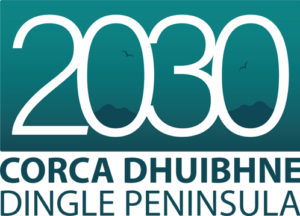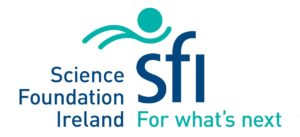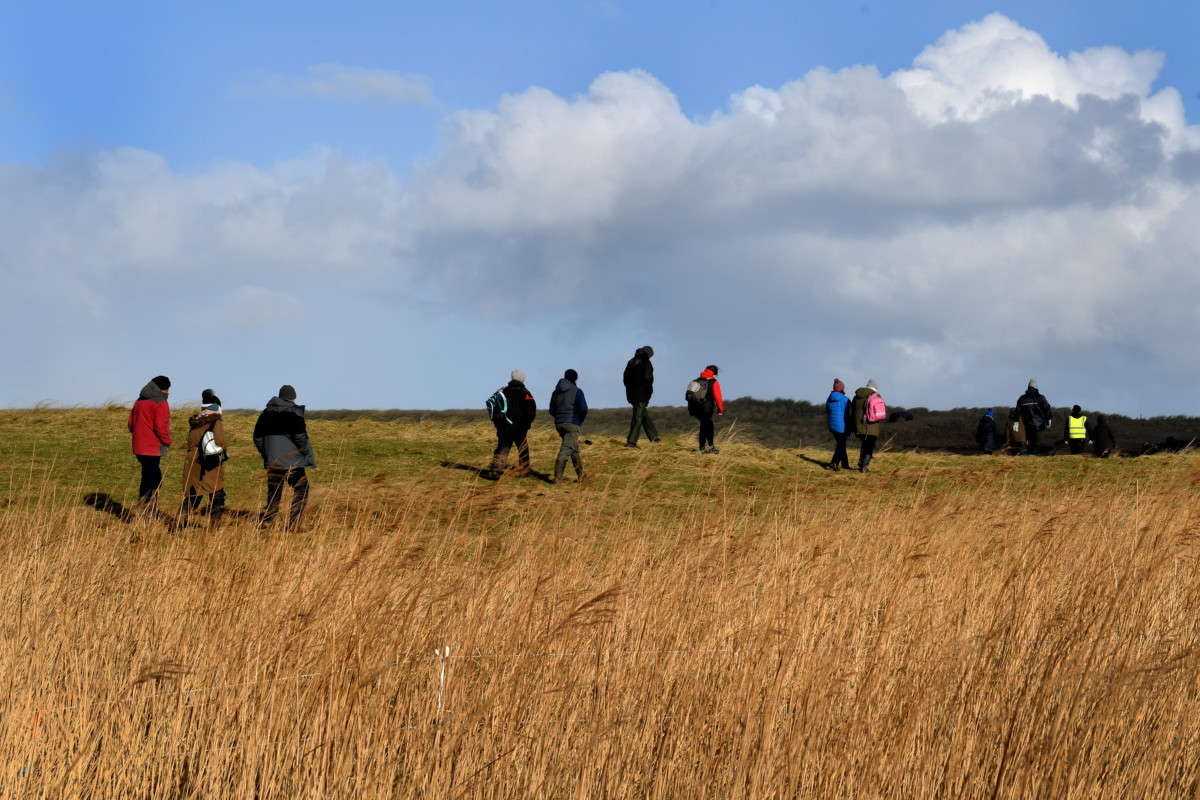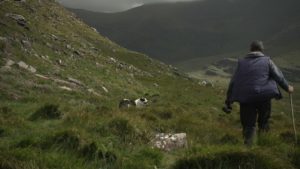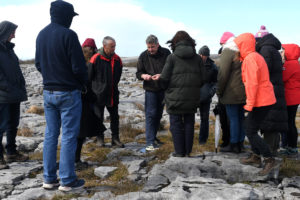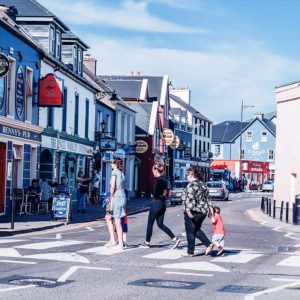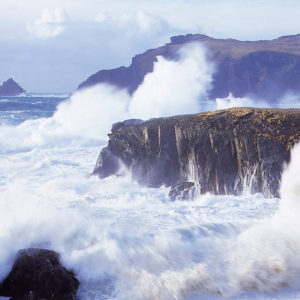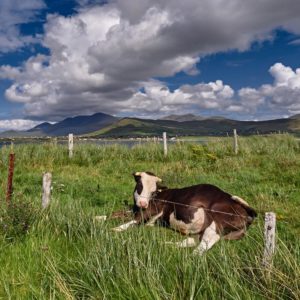February 10th 2022
Part of the Creative Climate Action project, Corca Dhuibhne Inbhuanaithe, is a series of visits to places of interest which connect farming and climate change. This project aims to support farmers on their journey to become more environmentally sustainable, whilst recognising that many have already begun to diversify and also, that farmers themselves have the solutions.
Our first project trip took place during the Covid pandemic and advance planning meant that we were limited to visiting sites on the Dingle Peninsula. We decided to visit Tommy Reidy’s organic farm in Stradbally in the morning, break for lunch at the Junction Bar in Camp, and then spend the afternoon with Martha Farrell of the Maharees Conservation Association.
It was a bitterly cold and raw February morning when we left Ballyferriter village. Wellingtons, warm coats and extra layers were a requirement for us all – but this was familiar territory for the farmers participating in this project who are used to harsh weather and being exposed to the elements.
Tommy Reidy’s Organic Farm, Stradbally
Moving to organic farming allows farmers to reduce their impacts on their natural surroundings and work more closely with nature. However, transitioning can be complicated and at times the bureaucracy associated with the shift is onerous. The farmers participating in this project are naturally wary of making the shift to organic, but also very open to hearing more about their options. Finding a market for organic produce which reflects its value was another concern voiced by the farmers.
Tommy Reidy is a organic beef farmer at Stradbally, on the Northern side of the Dingle Peninsula, not far from Castlegregory. Tommy’s cattle are Dexters, a rare but increasingly popular breed of cow which places less demands on the land and are hardy enough to overwinter outside on the land.
Tommy brought us through his farm, showing us the mixed species swards he has planted which include, clover, chicory and plantain. Mixed species swards generally have deeper roots, accessing nutrients and moisture deep in the ground and some (like clover) fix nitrogen in the soil, requiring less fertiliser to thrive. These swards are generally more drought resistant. Challenges are around decreasing swards over time with some species, and identifying the best grazing patterns for cattle to minimise species loss.
Tommy’s farm is in an very exposed site next to the sea, but explained how he has managed to grow hedgerows and small trees on the land to provide additional shelter for livestock.
Tommy is currently a part-time farmer (he has an off-farm income) but has ambitions to become a full-time farmer in the years ahead.
The group thoroughly enjoyed the visit to Tommy’s farm and were particularly interested in the benefits of the multi-species sward.
Lunch & a Visit to the Maharees
We travelled to the Junction Bar in Camp for lunch where we were well looked after with soup and sandwiches. In the afternoon, the group travelled the short distance to the Maharees to meet with Martha Farrell of the Maharees Conservation Association. Martha brought us on a walk along the beaches nearby, pointing out the serious erosion caused by climate change and habitat loss in this beautiful part of West Kerry. Repairing the dunes, dissuading the public from damaging them further, arranging alternative parking, have all contributed to improvements in this precious landscape. But it was obvious that this would be an ongoing struggle in the year ahead. We also met with a local farmer who shared his experiences of farming in this challenging environment.
Coming together in person for the first time was an inspiring experience for the group. We had met remotely over Zoom, but that could never match the connections we make when we meet physically. It was a great beginning…
